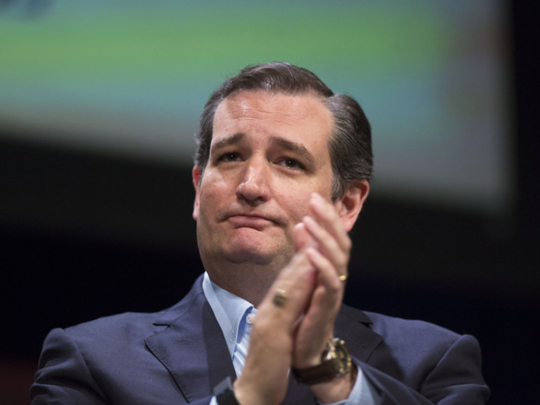
Coral Gables in Miami is the sort of neighbourhood where one percenters like to live. Large “Mediterranean revival” houses line quiet streets topped with tree canopies. The glorious local Books & Books, an intellectual oasis in Miami, was recently named best US bookstore by Publishers Weekly. Anyone willing to forsake air conditioning (once described as Miami’s true climate) can play some golf at the Biltmore Hotel. In fact, the only thing distinguishing “the Gables” from other one per cent neighbourhoods is that it is mostly Hispanic. Cuban-Americans are especially abundant. That helps explain why this humid haven is now at the centre of two geopolitical stories: the US elections and the US-Cuban rapprochement. A Republican party that can win the White House in modern America is taking shape here.
Jeb Bush, bookmakers’ favourite to become the Republican presidential nominee, lives in the Gables. Second favourite Marco Rubio is a few minutes’ drive away. “Jeb and Marco are from my church,” marvels Andy Gomez, a retired scholar in Cuban studies at the University of Miami. “The Church of the Little Flower, the only Catholic church that has two presidential candidates.”
America’s sexiest and most immigrant city is inevitably majority Democrat. But Miami Republicans are interesting creatures. The party here was forged in the cold war. And in this city full of Cuban exiles, the cold war chiefly meant liberating Cuba from the Castros. In the 1970s, anyone in Miami advocating dialogo with Fidel risked getting bombed. The fiercest anti-Castroites tended to be los historicos: The mostly elite whites who formed the first wave of Cuban exiles to come here after Castro’s revolution of 1959. These people started Miami’s transformation from sleepy little outpost into bilingual global city.
In 1980, 27-year-old Jeb moved there to campaign for Ronald Reagan in the presidential election. Over time, Jeb persuaded many Cubans — especially los historicos — that the Republican party could represent them. While Miami Cubans became Republicans, Jeb became an honorary Cuban. He grew rich in partnership with Cuban-American developer Armando Codina. Already fluent in Spanish, Jeb mastered Cuban slang. In 2000, his Cuban connections helped his brother become president: Miami Cubans overwhelmingly voted for George W Bush, and after Florida emerged as too close to call, angry Cuban-American demonstrators helped pressure election officials into abandoning the crucial recount in Miami. (Local radio stations had suggested that Al Gore was attempting a Castro-style leftist coup.) In 2002, a local young Cuban politician named Marco Rubio gave Jeb the ultimate accolade: “He’s practically Cuban, just taller.”
Predictably, Jeb and Rubio (and their rival Republican contender, Cuban-American Ted Cruz) are now attacking Barack Obama’s dialogo with the Castros. Hardline anti-communism is their political mother tongue. However, this language is losing favour even in Miami. Polls show that most Cuban-Americans now support dialogo. After all, the 55-year-old US embargo of Cuba has not exactly worked yet. Moreover, the Iraq war taught Miami Cubans that an invasion of Cuba might not automatically create democracy.
The local obsession with ousting the Castros has weakened anyway. Miami’s recent Cuban arrivals — thicker on the ground in poorer, flat, hot Hialeah than in the Gables — tend to be economic immigrants who don’t do politics. Meanwhile, the old Miami fantasy of reclaiming the lost family home in Havana is dying with los historicos. Few of their children plan on returning to a rundown island without air conditioning. Instead, they prefer apolitical Cuba nostalgia: The gold-framed photos in the trendy Bread + Butter restaurant in the Gables cast Havana as a sort of 1950s Bacardi ad, where beautiful young white people inhabit a tropical bourgeois paradise.
When Cuba and the US reopen embassies on each other’s territories, probably next week, expect few old-style shrieks of rage on Miami’s Spanish-language radio stations. Even Rubio seems to accept the principle of talking to the Castros. He merely complains that the government is giving them too much — the standard Republican line that Obama cossets America’s enemies.
Should the Castros ever go, the flow of people will not be from Miami to Cuba, but the other way round. The spectre of impoverished migrants floating across the Florida Straits — rather like recent scenes on the Mediterranean — has concentrated minds in Washington. If Cuba’s regime falls, says Gomez, “America is going to hope for the military to take over. Why? Security! As long as there is stability on this island 90 miles from our coast, the US can live with it”.
The old Miami-Cuban dream of a Cuban-American president in Havana has faded. Instead there is now a new dream: A Cuban-American president in Washington. Miami has come up with a form of Republicanism attuned to today’s US. Miami Republicanism embraces Hispanics, now the nation’s biggest minority. It has experience in winning over Democrats. It is not American puritan, and is therefore fairly relaxed about modern sex. It does not do Confederate flags, because Miami did not exist during the civil war. And it knows something about the world outside the US. If Republicans want to win in modern America, they ought to visit Miami. Do not be afraid: It is very near the US.
— Financial Times








